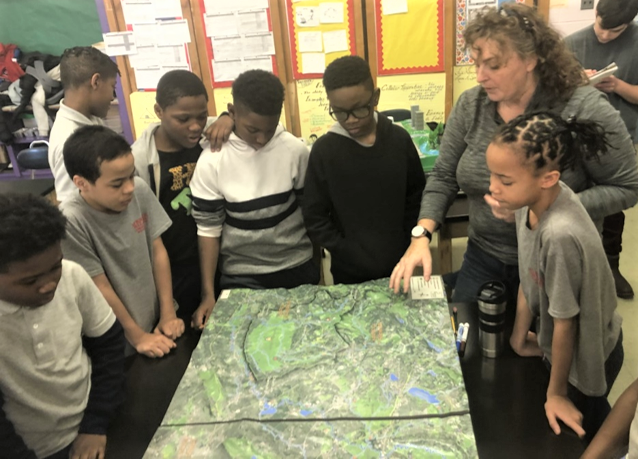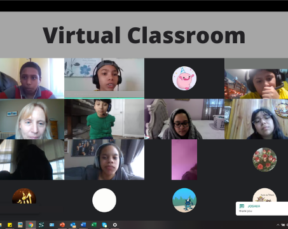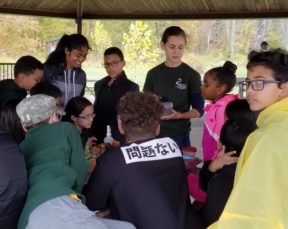By: Hazel England, Director of Education & Outreach, Land Steward
Educational programming began quickly in 2020! On January 21, GSWA’s education staff travelled to classes at Louise A. Spencer school in Newark to teach 6th grade students about watersheds, water quality, and where our water comes from.
“Who used water this morning?” This is usually the first question asked of students, all of whom raise their hands as they recall brushing their teeth, showering or flushing a toilet.
“But where did that water come from before the tap?”
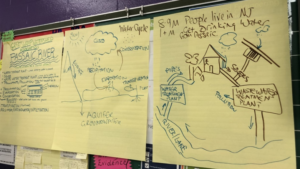

List of Vocabulary, the Natural Water Cycle and NJ’s Water Cycle.
In considering this question we can explore with students the journey water takes as a vital resource to humans and the environment. We discuss the natural water cycle and how it’s missing one of the biggest users of water – people! Then we construct the “real” New Jersey water cycle, starting at the tap and ending back around with treatment plants, storm drains and combined sewage overflows (CSOs). Using GSWA’s topographic model of the Passaic River watershed, we define and explain the concept including having students create their own model of a watershed using markers and paper. Students discuss the differences between permeable and impermeable surfaces (think of parking lots vs. meadows – can the water permeate the surface?) and the role that can play on water issues such as pollution and flooding.
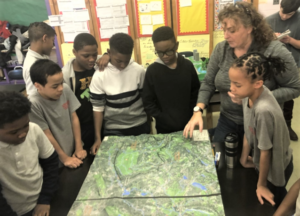

Hazel and students with topographic model of the Passaic River watershed.
We also speak about the types of problems our water can face, as it relates to pollution. Using our enviroscape model of an urban landscape (a hands-on, interactive demonstration of how stormwater runoff carries pollutants through a watershed) students explore how different sources of either point source or non-point source pollutants can enter the system and what kind of threat they pose. We are able to explore the different systems we have in place, such as water treatment plants and storm drains, and why combined sewage overflow can be a problem in more developed and urban communities who still use them. We then discuss what kinds of solutions might remedy each situation, including green infrastructure and public education.
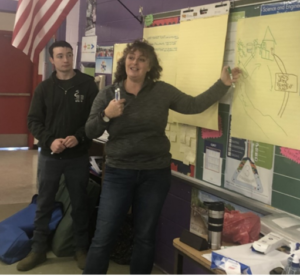

Hazel and Adam Palmer present the NJ Water Cycle.
These in-class programs are the first of the three-part programming GSWA conducts with a variety of schools, typically followed by an exploration of the school’s playground in relation to water, and ending with a field trip out to the Great Swamp, where students explore how water moves in a natural environment. All the concepts learned in each segment tie together to provide students with a deep understanding of the importance of water as a resource and inspiration for future STEM (science, technology, engineering and mathematics) leaders of tomorrow.
